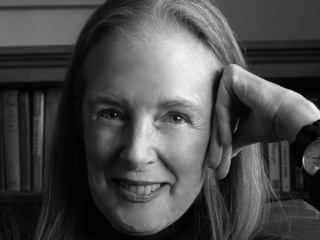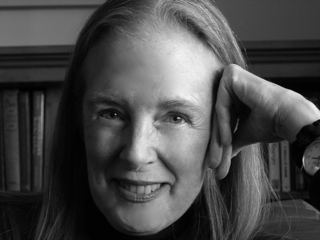I was 21, living in Houston, and appearing in a play called Fire, when Robert Altman came to town to film BREWSTER MCLEOD, a now mostly-forgotten movie that was now mostly-forgotten actor Shelley Duval’s debut. Rumor had it Mr. Altman had plucked her from behind the cosmetics counter at Foley¹s department store. Well! I thought. Why should he not pluck me, as well?
That afternoon while my one-year-old daughter was down for her nap, I wrote a letter that began: Dear Robert Altman, I would like to be your New Star.
There was more, but that was the gist of it. I put the letter in an envelope along with my headshot, a few candids, some reviews. Once young Lizzie was awake, I loaded her onto the back of our bicycle and pedaled off to hand-deliver the envelope to the Warwick Hotel where the director and his entourage were staying.
I’d blown breathlessly into Houston two years before, worked as a waitress and a Houston Post researcher, made friends at coffee shops and peace rallies, married a Rice University student, had a child, decided I was an actress. In those days I confused patience with entropy, and was driven by a burning urgency to be something before life (meaning my 20s) passed me by. What mattered most (the standard to which I held myself most strictly accountable) was that I not be afraid to try new things.
I delivered the envelope to the Warwick¹s concierge and pedaled away. The next day, again during naptime, the phone rang. It was Robert Altman, inviting me to a party. I remember a frisson of panic. Maybe this particular trying of a new thing had been supposed to end with delivering the letter? Besides, wasn’t I five pounds too fat for any kind of official viewing? And what on earth would I wear?
“I’m in a show,” I said, buying time, possibly hoping for a reprieve.
“So am I,” Mr. Altman said, “so we’ll start early. Come around 6, before your theater call.”
The director’s suite in the Warwick was smoky. People said there were drugs, drugs, drugs everywhere around this man, but how was I to tell? I drank cheap wine and smoked a little. Beyond that, experience ended and affectation of experience began. Altman wasted no time in coming over, shaking my hand, looking me up and down. He asked if I’d like to come to Minnesota and make a movie.
There it was, my brilliant career unfolding. Here was a ticket to Hollywood by way of Minnesota! McCabe and Mrs. Miller and Martha.
Panic, again. “But I have a child,” I said.
Altman was very kind. “So do I,” he said. “Several. You have to choose what you want. Will you come to Minnesota and make a movie or stay here with your child? You may call me tomorrow with your decision.”
My brain felt hung on an electric fence. I’d only just steadied (sort of) after zooming out to Houston. What would happen if I zoomed off somewhere else? How would I be on a movie set, hanging out with artistic strangers who used drugs I didn’t recognize? Of course, I didn’t know enough yet to form this as an actual consideration, but I did know on some gut level that trying new things was quite scarily different from doing them.
Fire! The play I was in had been directed by an intense young man who’d tried and failed to kill himself early in the rehearsal period, supposedly moved to despair by a habit of falling in love with straight guys. The director (I’ve forgotten his name) had shot himself in the mouth, so he’d certainly meant to die; but he’d made the mistake of using a tiny gun that shot tiny bullets. His particular tiny bullet had lodged in the safe center of his brain, where I presume it still is. He’d come back to rehearsal a week later, apparently physically unscathed, much happier, talking about how hungry he was. He was quite pudgy by he time we opened.
I’d had no idea how to be around the director when he came back. To me, it seemed one thing to kill yourself for failing at love; another thing entirely to fail at killing yourself for failing at love. I’d have been certain the latter demonstrated to the entire world my complete personal ineffectualness to the nth degree. And yet here this man was, completely unashamed, laughing about his bullet, dispensing hugs. I couldn’t quite look him in the eye.
My problem was that I had no context as for coping with such dazzling and generous resilience, no experience yet of my own colossal capacity to bounce off a bottom. I’d gotten by on luck and charm and looks, rather than grit. There simply wasn’t enough me yet for grit and, I suspect, one does need considerable grit on a movie set.
So, anyway, McCabe and Mrs. Miller remained McCabe and Mrs. Miller. I called Altman the next day to say I wasn’t going, even though such non-action nearly killed me. My mother used to say a special angel protected fools, drunkards and her younger daughter. Certainly as life went on, I was often to act the fool and most certainly became a drunkard; but here I still merrily am, so perhaps mother was right. Plenty of other people might have enough grit at 21 to survive an Altman movie set intact, but I did not.
I’ve never regretted staying put. Miss Lizzie, my daughter, has grown and flourished, as has my then-husband, albeit with another wife. It took time, but I eventually evolved into a journalist and writer with enough grit to look anyone, anywhere straight in the eye. A few years before his death, I interviewed Robert Altman. At the beginning of our conversation, I reminded him of Houston, my letter, his party, the offer he’d made me to go with him to Minnesota.
As is right and proper in this sweet, old world, Altman remembered none of it.
Martha Woodroof was born in the South, went to boarding school and college in New England, lived in Texas for a while, then fetched up in Virginia, where she’s been ever since. She co-owned a couple of Charlottesville restaurants in her thirties (built around her cooking), then turned to broadcasting, finding true professional love in public radio. Her stories may be heard currently on NPR, Marketplace and Weekend America, and through the Virginia Foundation for Humanities Radio Feature Bureau. Her print essays have appeared in such newspapers as the New York Times, The Washington Post, and the San Francisco Chronicle.
She lives with her husband in the Shenandoah Valley of Virginia. Their closest neighbors are cows.


